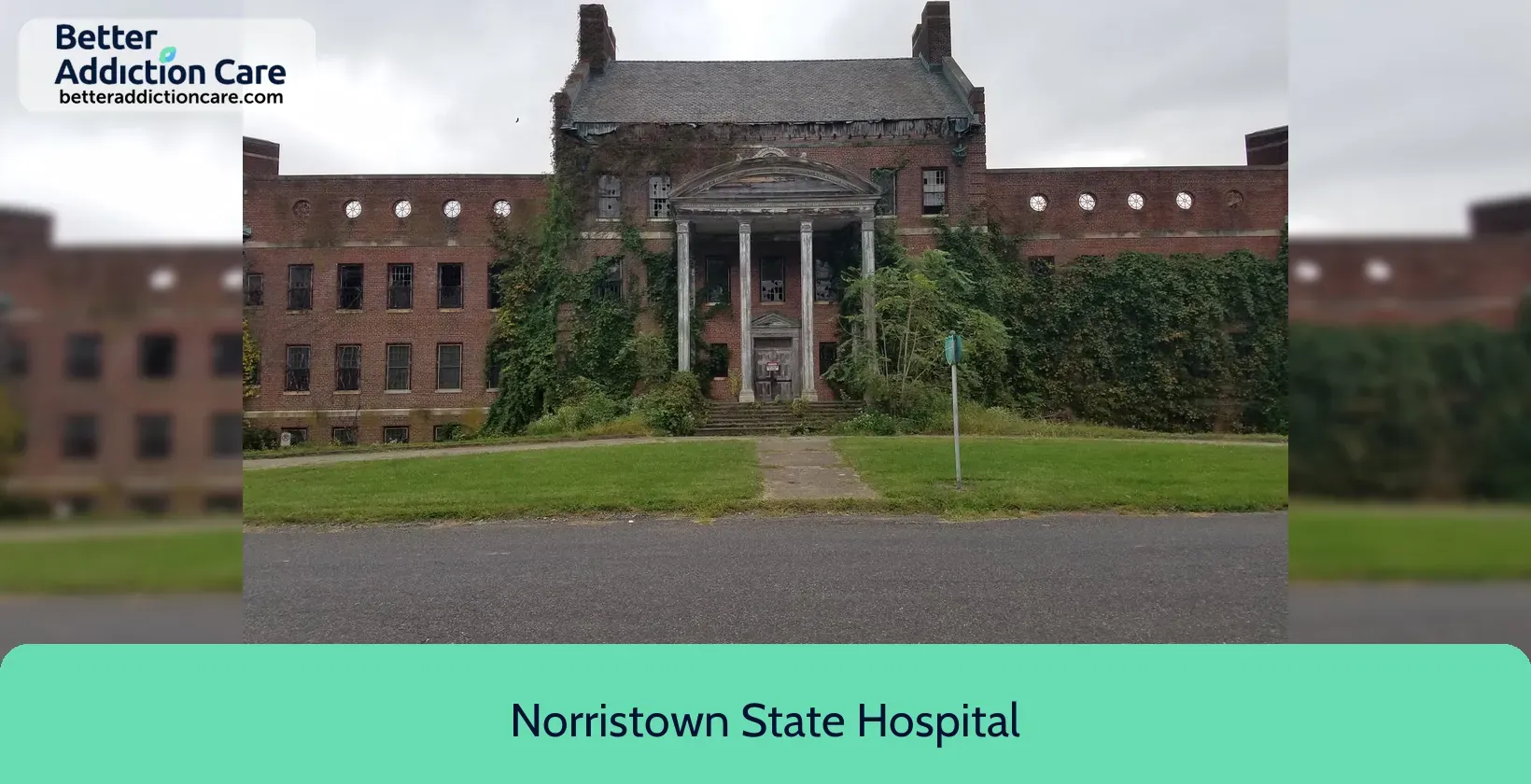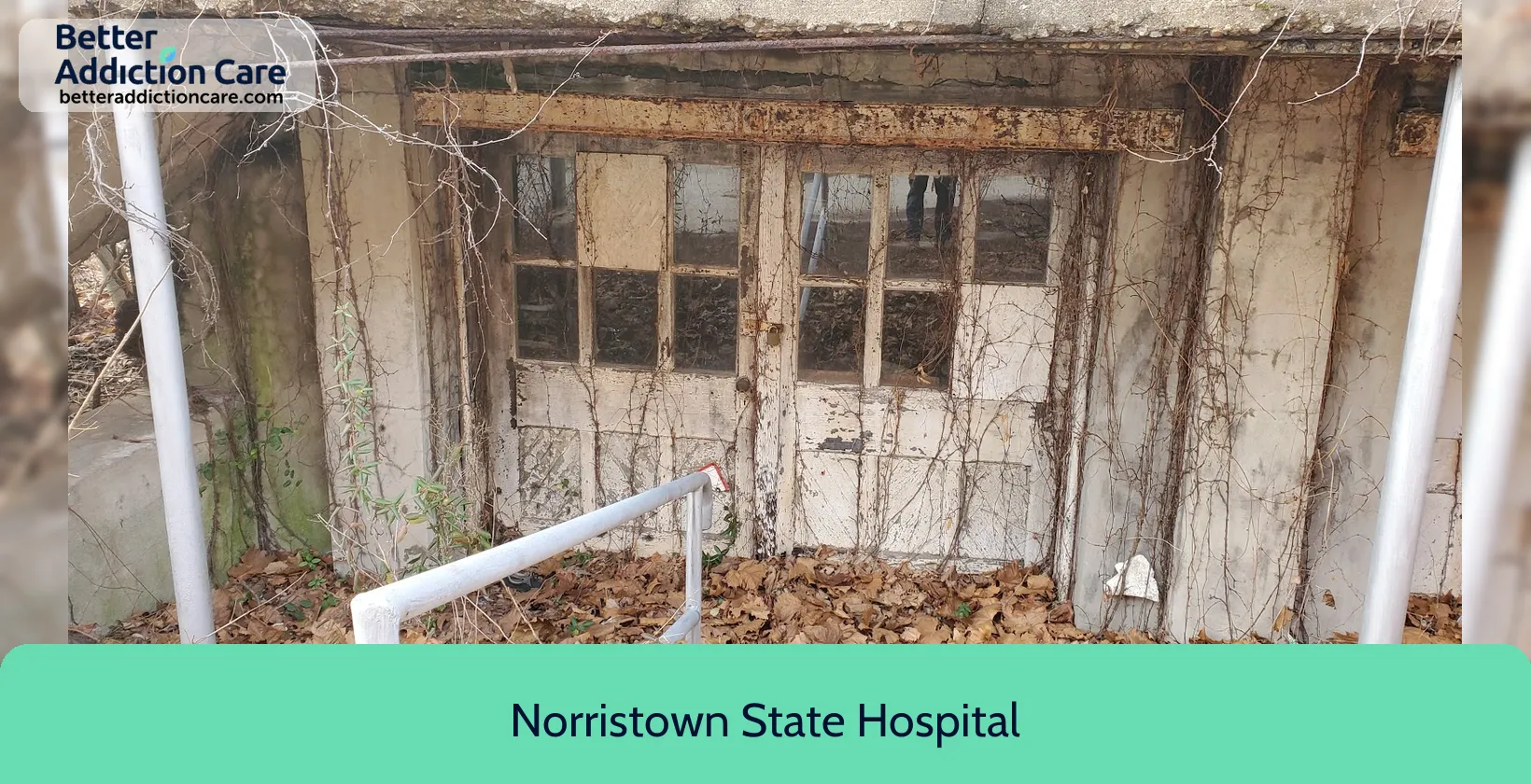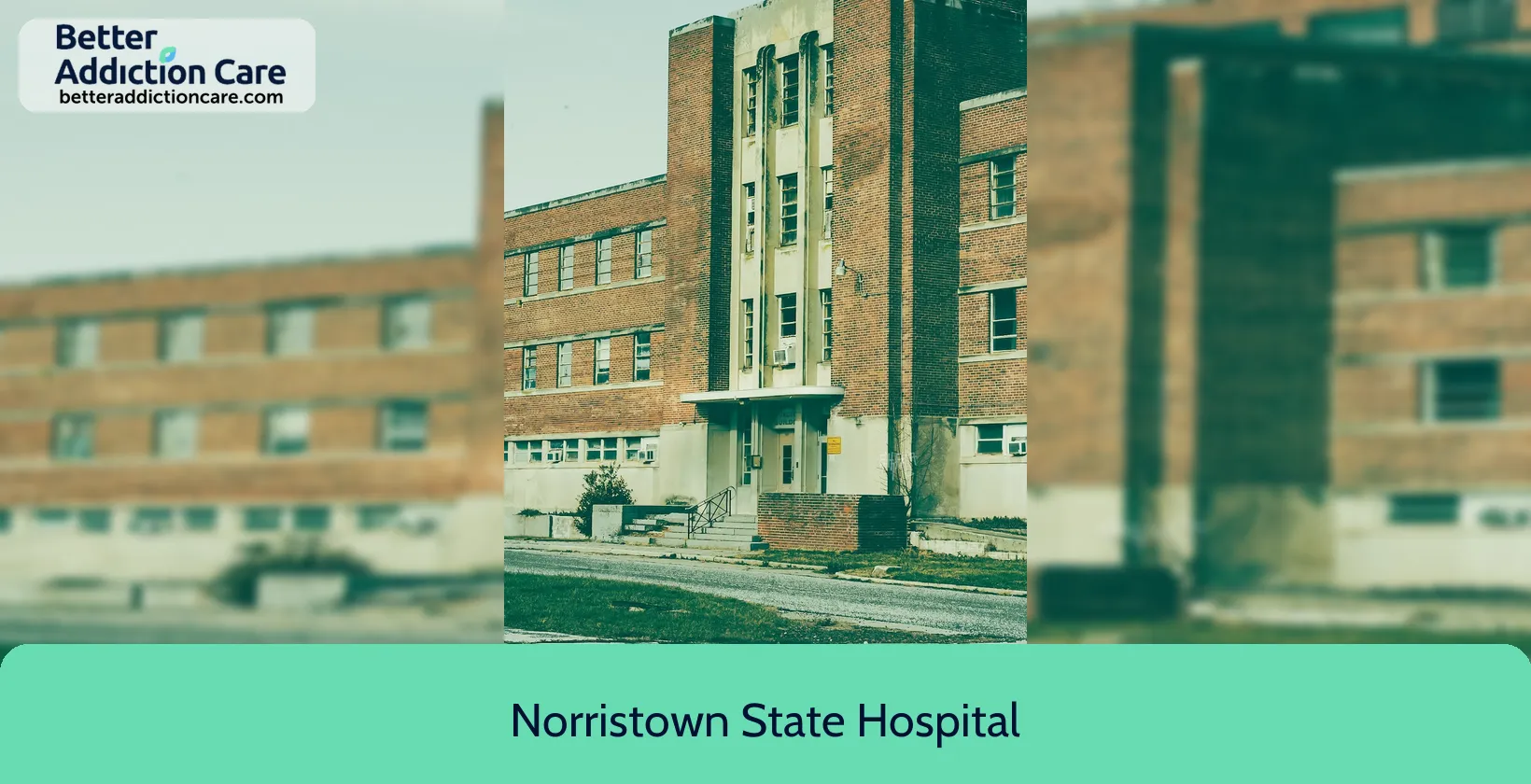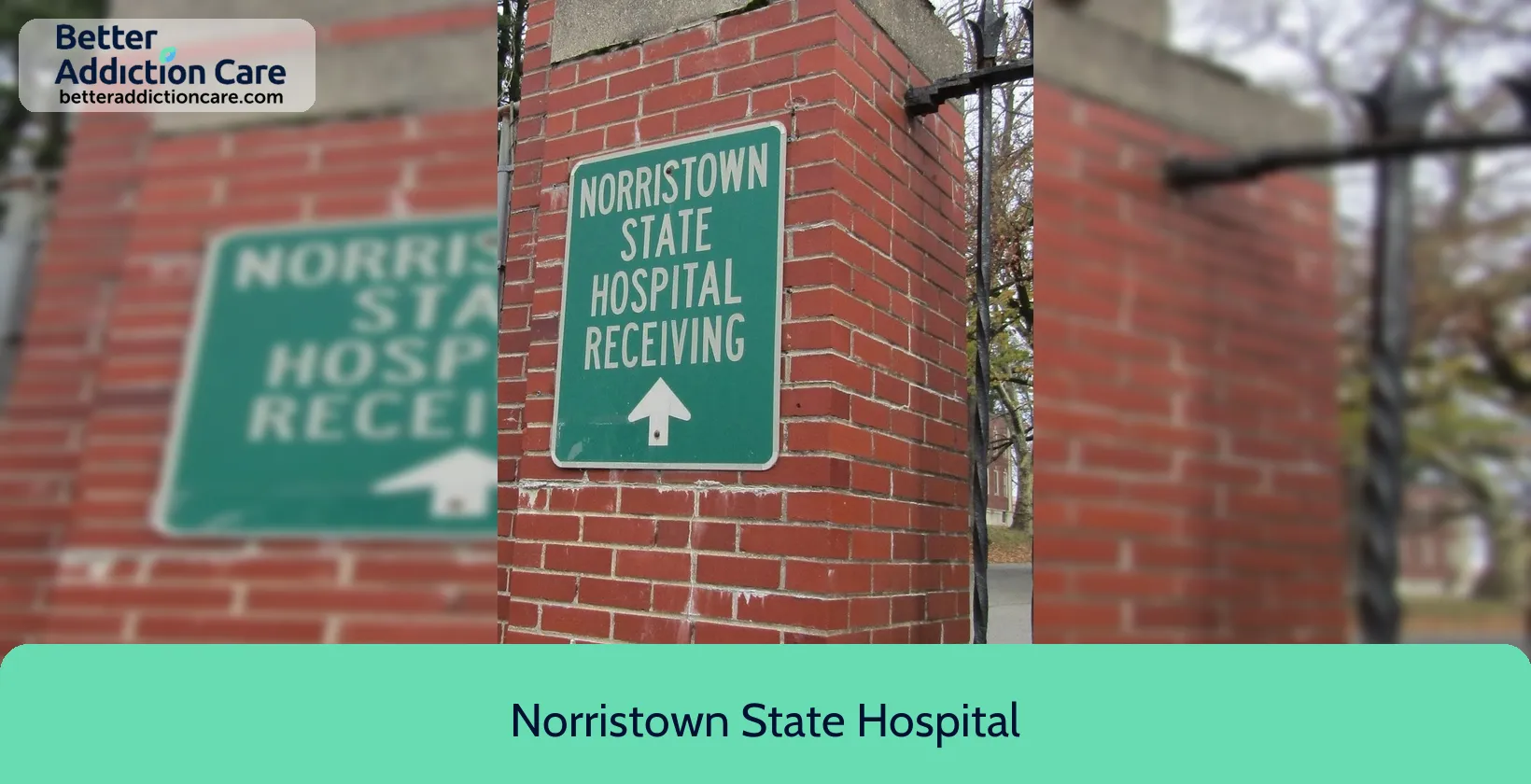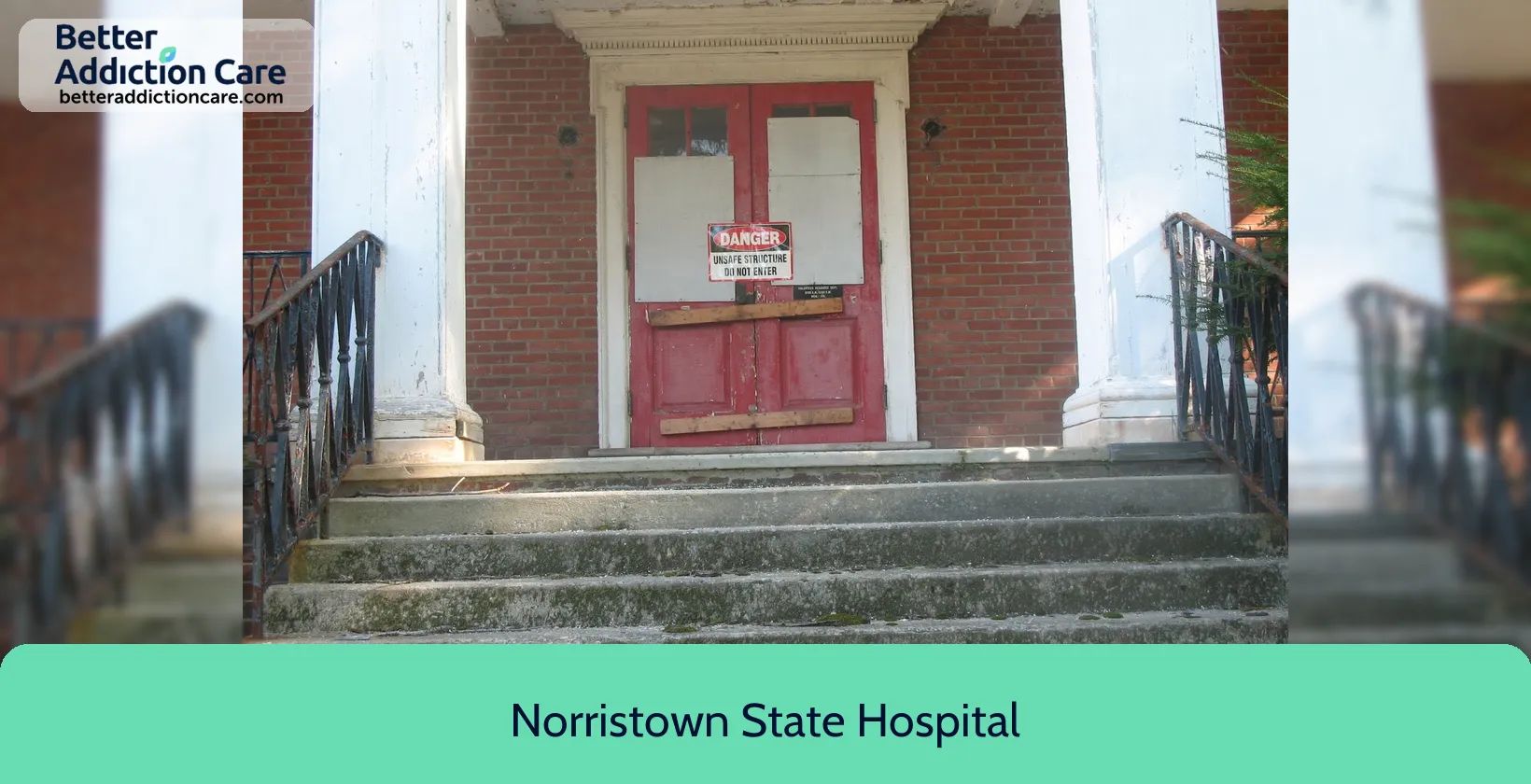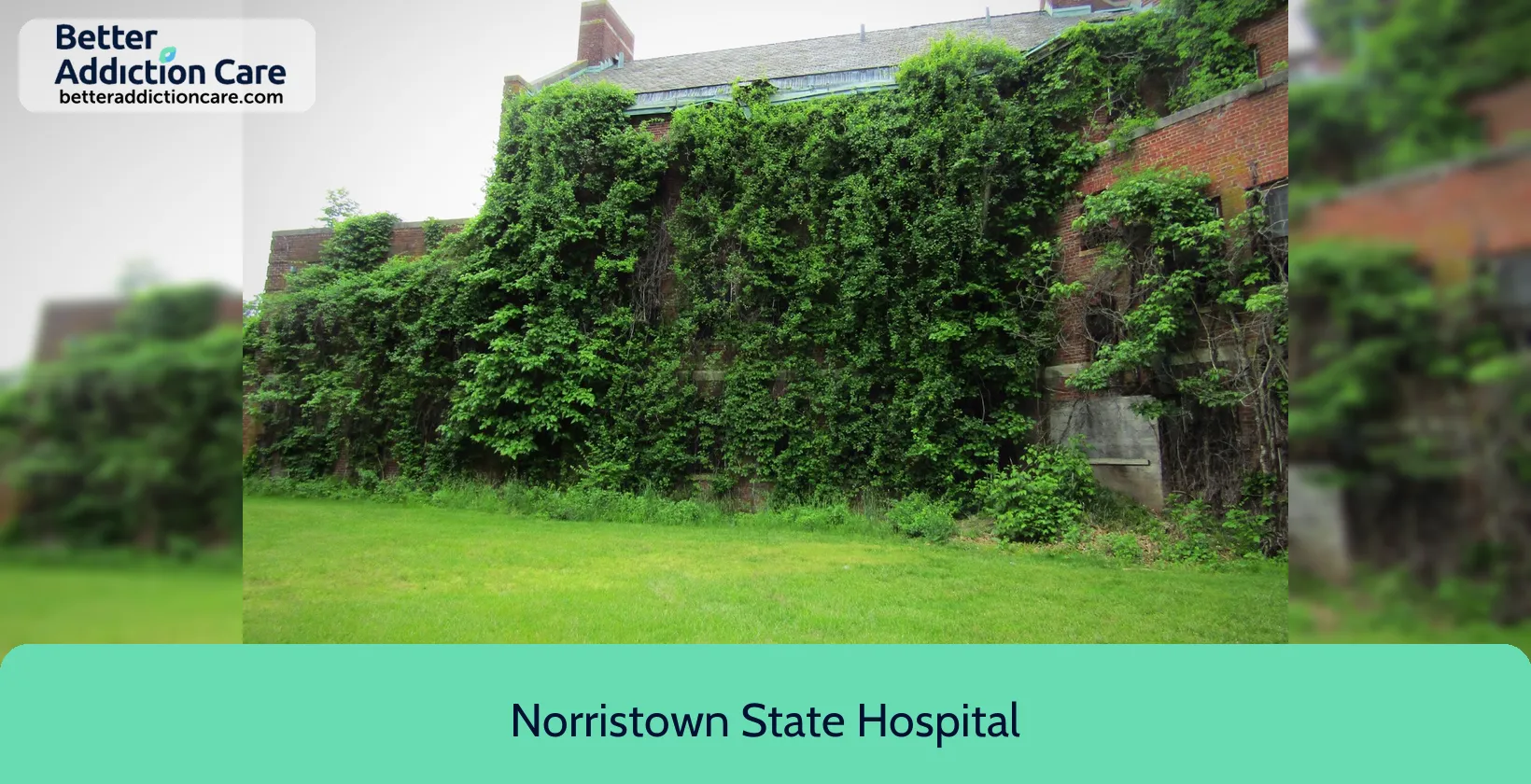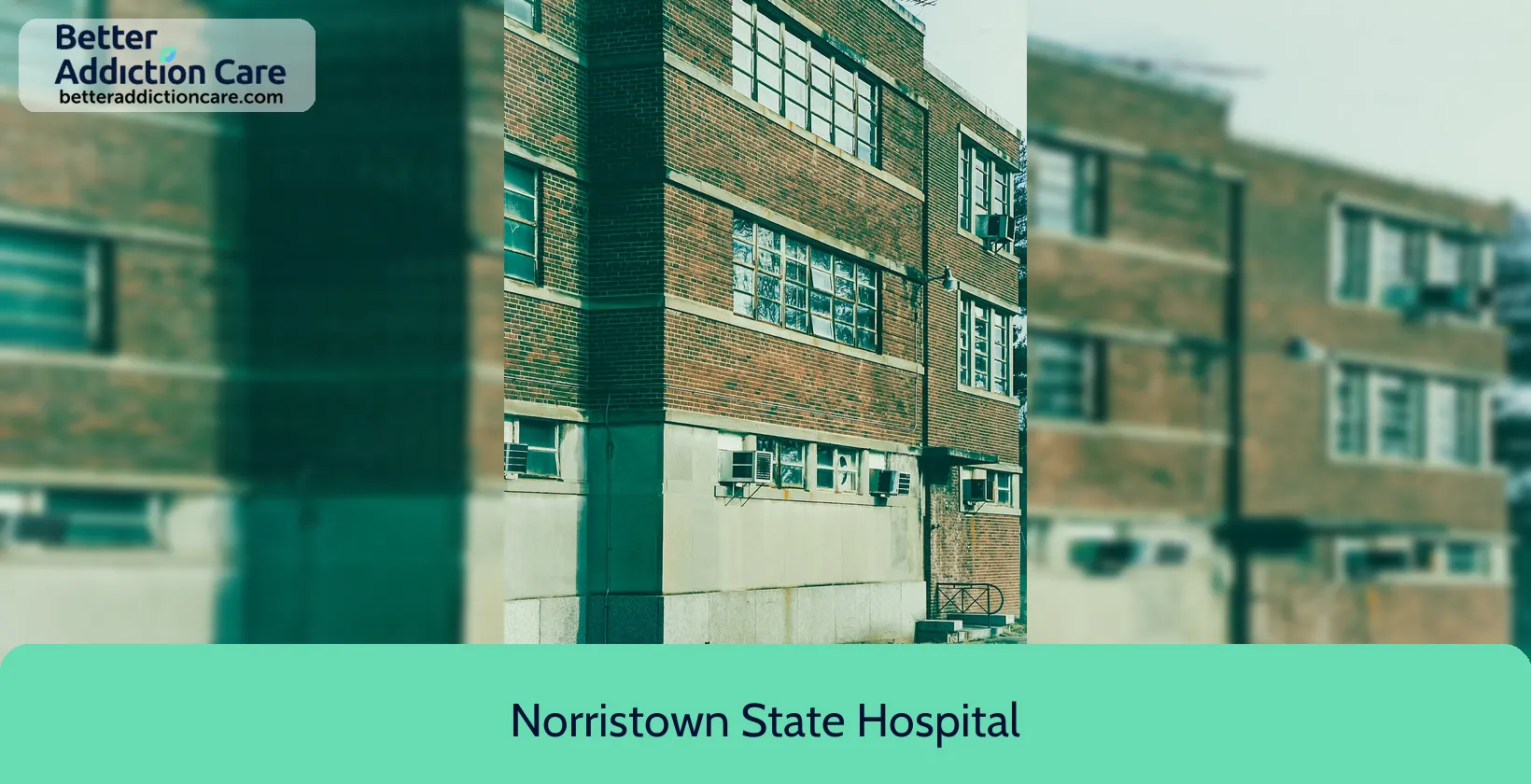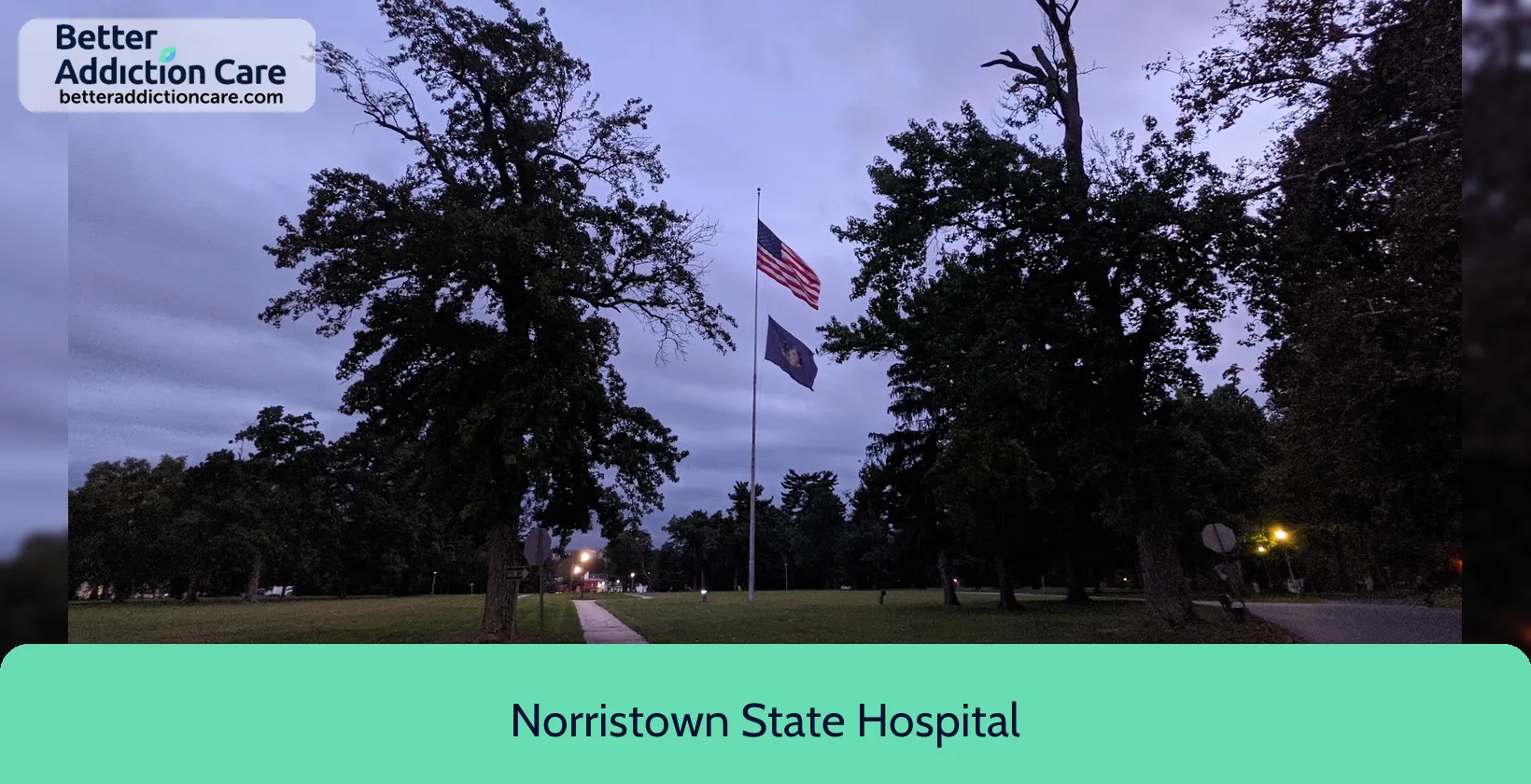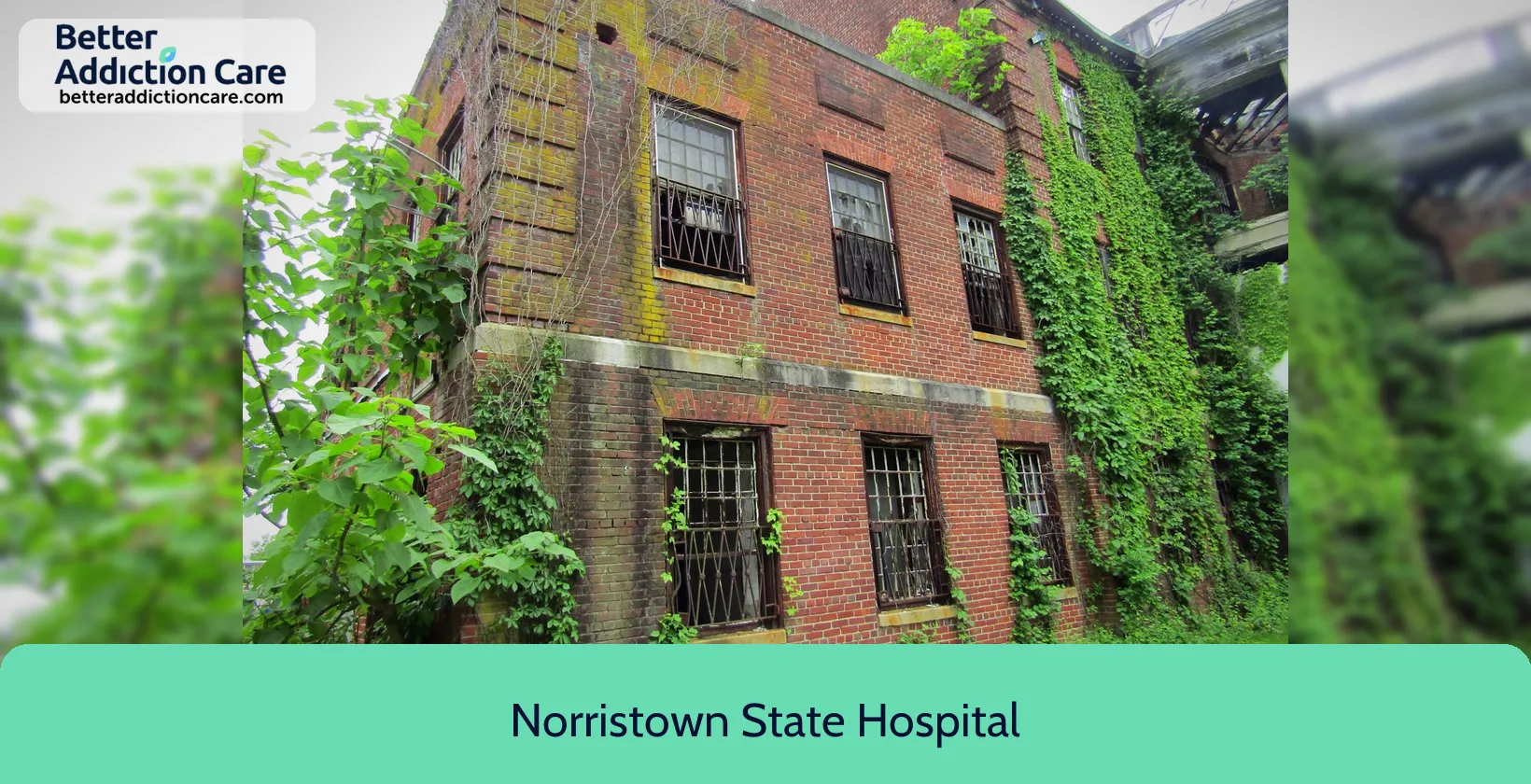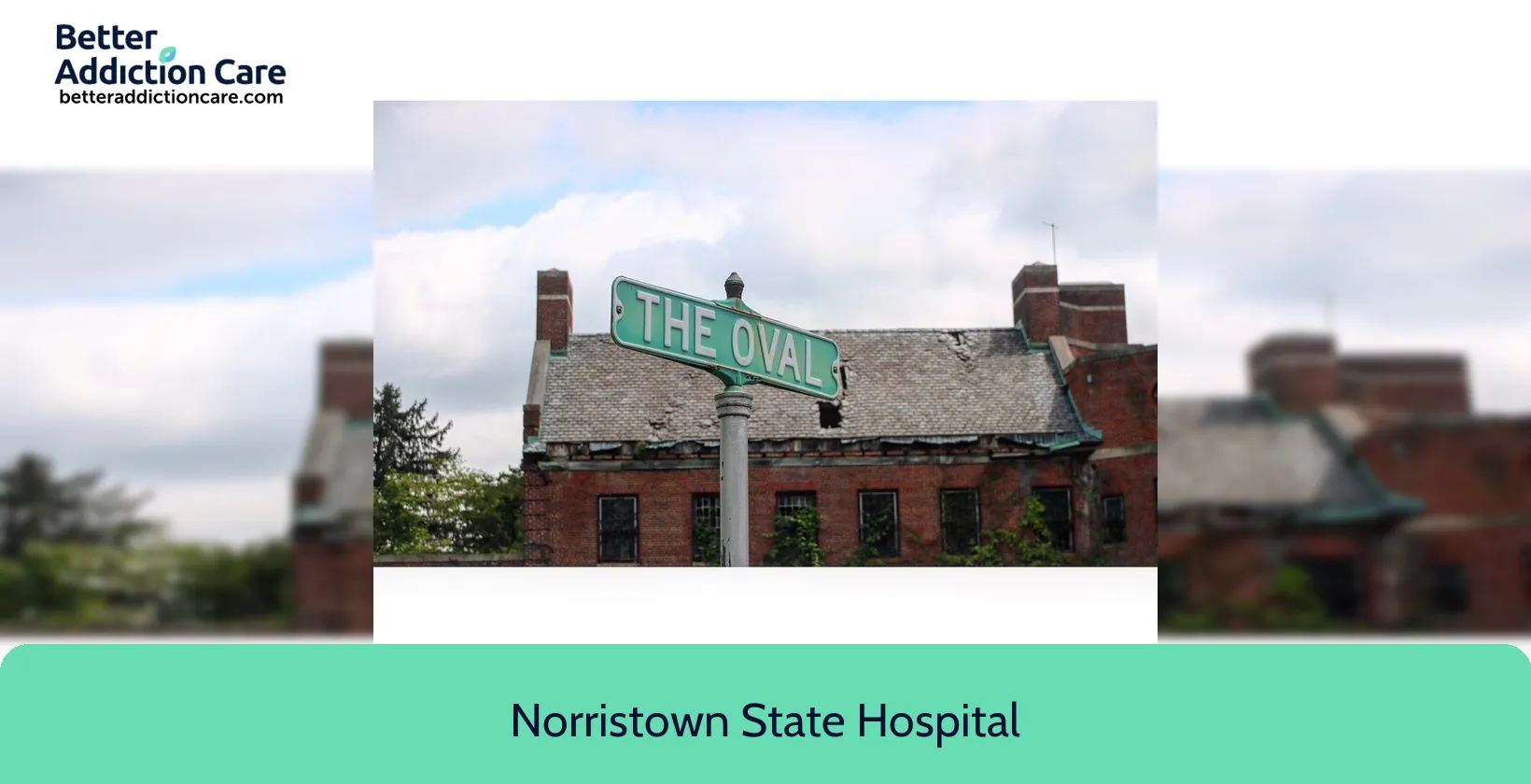Norristown State Hospital
Overview
Norristown State Hospital is an substance abuse treatment center that provides inpatient treatment for men and women from 18+ years of age. As part of their special programs, Norristown State Hospital To help patients achieve sobriety, Norristown State Hospital provides intake assessments. Afterward, patients receive individual psychotherapy, group counseling, and life skills during treatment. Norristown State Hospital is located in Norristown, Pennsylvania, providing treatment for people in Montgomery County, accepting county or local government funds, community mental health block grants, and community service block grants.
Norristown State Hospital at a Glance
Payment Options
- County or local government funds
- Community Mental Health Block Grants
- Community Service Block Grants
- Medicaid
- Private health insurance
Assessments
- Comprehensive mental health assessment
- Comprehensive substance use assessment
Age Groups
- Adults
- Young adults
Operation
- State government
Highlights About Norristown State Hospital
6.69/10
With an overall rating of 6.69/10, this facility has the following balanced range of services. Alcohol Rehabilitation: 8.00/10, Insurance and Payments: 6.53/10, Treatment Options: 6.24/10, Drug Rehab and Detox: 6.00/10.-
Alcohol Rehabilitation 8.00
-
Insurance and Payments 6.53
-
Treatment Options 6.24
-
Drug Rehab and Detox 6.00
Treatment At Norristown State Hospital
Treatment Conditions
- Mental health treatment
- Substance use treatment
- Co-occurring Disorders
Care Levels
- Hospital inpatient treatment
Treatment Modalities
- Individual psychotherapy
- Group counseling
- Life Skills
Get Help Now
Common Questions About Norristown State Hospital
Contact Information
Other Facilities in Norristown

8.12
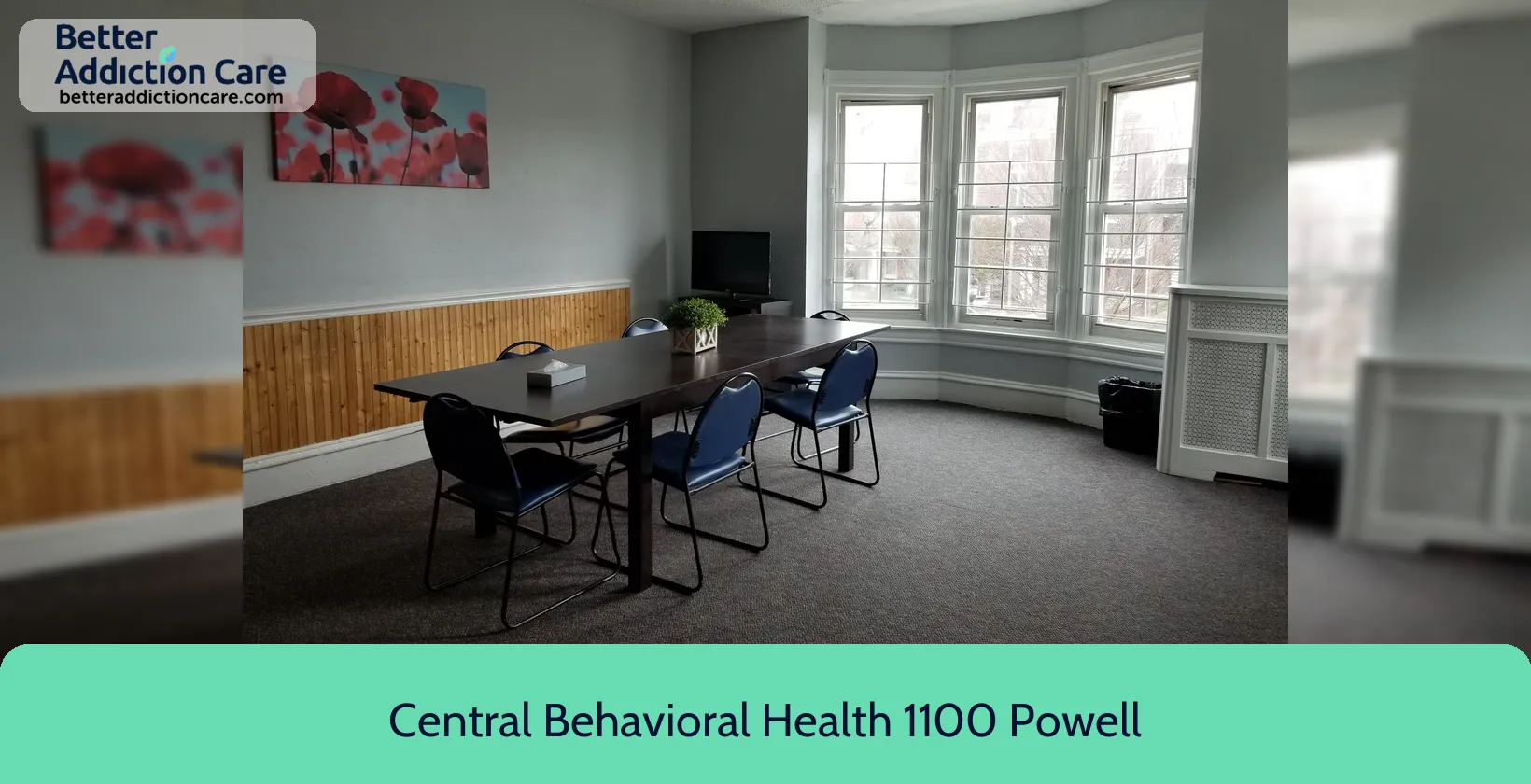
6.68
DISCLAIMER: The facility name, logo and brand are the property and registered trademarks of Central Behavioral Health 1100 Powell Street, and are being used for identification and informational purposes only. Use of these names, logos and brands shall not imply endorsement. BetterAddictionCare.com is not affiliated with or sponsored by Central Behavioral Health 1100 Powell Street.
